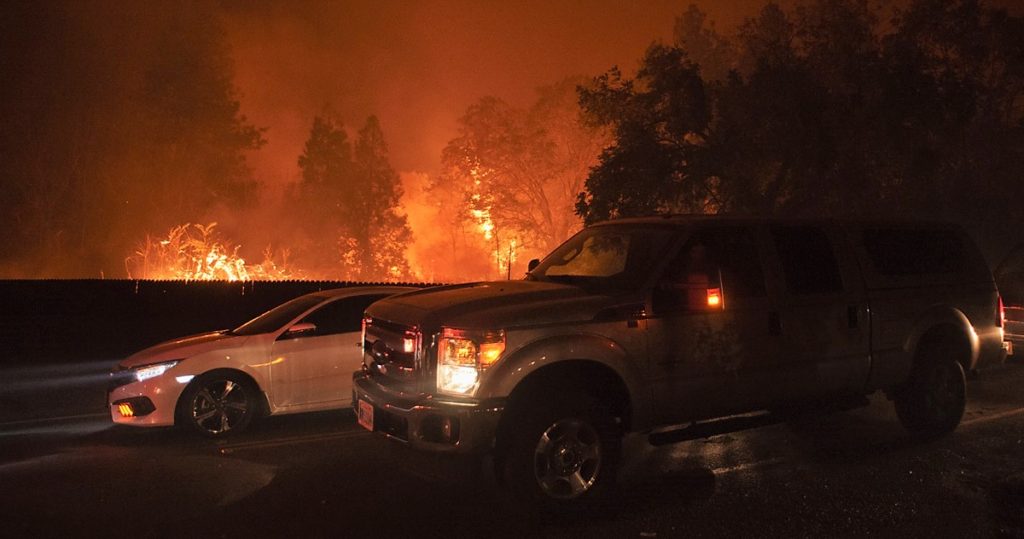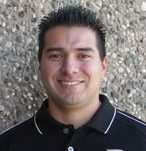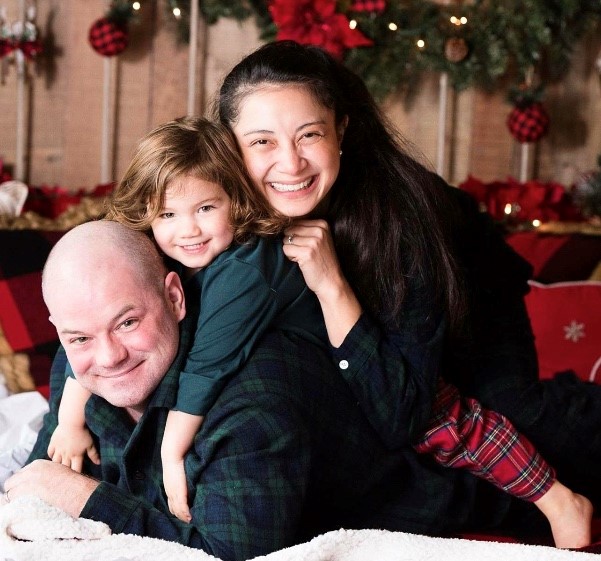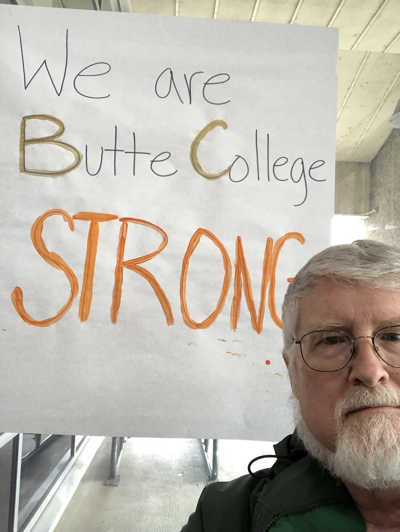It’s been nearly three months since the Camp Fire, the deadliest and most destructive wildfire in California history, killed 86 people, burned 153,336 acres, obliterated 18,804 structures, and destroyed 95 percent of the town of Paradise.
Butte College students and faculty were hit hard by the fire. Of the 1,471 students living in the Camp Fire area, over 700 reported they lost their homes. Every department was touched in some way by the fire as 129 employees lost their homes. Many faculty and staff are still living with colleagues. Others are providing space or fields for travel trailers and campers.

The total harm to the mental and physical health, the learning environment, and the safety of students and faculty will not be known for months to come. Through it all, the college family has been pulling together, said Mario Vela, Butte College Education Association (BCEA) president.
CCA members affected by the fire are
still picking up CTA Disaster Relief Fund checks and stopping by the CTA Chico
office to pick up gift cards. “The outpouring of support from CCA and CTA
chapters has been very cool,” Vela said. “It’s been very thoughtful. We all
appreciate it.” It’s hard to know how to help, added Vela, who personally
reached out to affected faculty. For him, it’s a matter of taking time to
listen.
“That’s what I’m here for. We took
care of business, filling out forms, and I lent an ear. I’ve been thanked for
simply listening,” he said. A lot of donations came in but were not being
picked up because people did not have a place to put them, Vela said. For
example, some people wanted to donate turkeys for Thanksgiving dinner. “It was
frustrating for faculty because they had no place to cook.”

What’s needed? Housing. That may
impact the future of Butte College, based in Oroville, as officials wait to see
how many displaced faculty don’t return because they can’t find housing. “Many
are in Yuba City and Roseville, but people are not going to commute 90 minutes
one way every day,” said Vela.
Faculty made it through the semester
as the Chancellor’s Office allowed flexibility with class loads, enabling
students to get hours so they could graduate on time. Finals week was changed
to an instructional week, for example, and faculty adjusted coursework.
“Faculty got creative about how to give finals,” said Vela, who combined small
projects into one and made the final a take-home.
How did BCEA colleagues fare?

Melissa Artstein-McNassar and her husband moved to California in January 2018, and in June closed on their new home in Paradise. The anthropology instructor was “making it a home, preparing to spend our first Christmas there,” she said. “Now there’s nothing.” A neighbor came over and pointed above her house. She saw huge gray-black plumes of smoke and heard explosions. She grabbed emergency supplies, her 3-year-old daughter and the dog, and dashed for safety. The dash lasted six hours. “Everywhere was gridlocked. People were running out of gas and getting stuck on the side of the road, so other people were picking them up.”
Artstein-McNassar and her family are
still trying to figure out what to do. “Our house is gone, but we’re safe with
a roof overhead that’s not a tent.” She’s glad for the caring and supportive
Butte College faculty, but she’s worried about the students. “They are
displaced all over the state.”

After evacuating with his wife and three children, ages 6, 8 and 11, automotive instructor Craig Kielb moved to shelters and homes, including a stint in Reno, before returning to Chico. When they evacuated, “I didn’t care about stuff, we just moved fast.” In fact, stuff became problematic. “Too many people were trying to give my kids toys, but we had nowhere to put them.” Gift cards for everyday necessities are the most useful donations, he said, adding, “We’re doing all right, considering.” Kielb is back in class with his students, many of whom have a hard time paying attention. They’ve got other things to think about, he said.
Daniel Barnett was one of the lucky ones. Not only did he miss going through the horrific evacuation, because he was up in Oregon, but his house survived the fire. In his neighborhood, three houses burned. “Ours is OK, although it can’t be occupied,” he said. “We visit the house for a few hours every few days.”

Barnett teaches Introduction to Logic
online, so his classes were not interrupted. Students actively deliberate
issues and help one another with coursework in the open discussion areas. Some
are also now sharing fire experiences. Barnett said many instructors put course
materials online via Canvas (the college’s learning management system), so
students who found housing outside of the area could “return” to class.
As classes finished for the
semester, “counselors encouraged us to be on the lookout for post-traumatic
stress symptoms,” Barnett said. “Faculty and staff will be dealing with this
for months to come, even as cleanup begins.”
Linda Johnson, chair of the social and behavioral sciences department, agrees. She lost her home and is now staying with her mom in a senior living facility. She described the escape from the fire and waiting in the darkness with fires glowing and gas tanks popping nearby as “one of most horrific things I’ve lived through, and I’m 60. I’ve lived a rambunctious life.”
Johnson encourages those who want to
“do something” to continue reaching out to those impacted by the fire. “It’s a
trial to live in other people’s homes. It’s going to last a while. Regular
outreach, even if you reach out and text someone, will make a difference.”
CCA Cares
If you or a CCA colleague has been
impacted by the fires, share information on the CTA Disaster Relief Fund at ctamemberbenefits.org/drf.
To help students and faculty affected by the Camp Fire, donate to the Butte College Camp Fire Relief Fund at butte.edu/campfire/donate.html.
See more stories about CCA members
at californiaeducator.org
and at cca4us.org.
The Discussion 0 comments Post a Comment